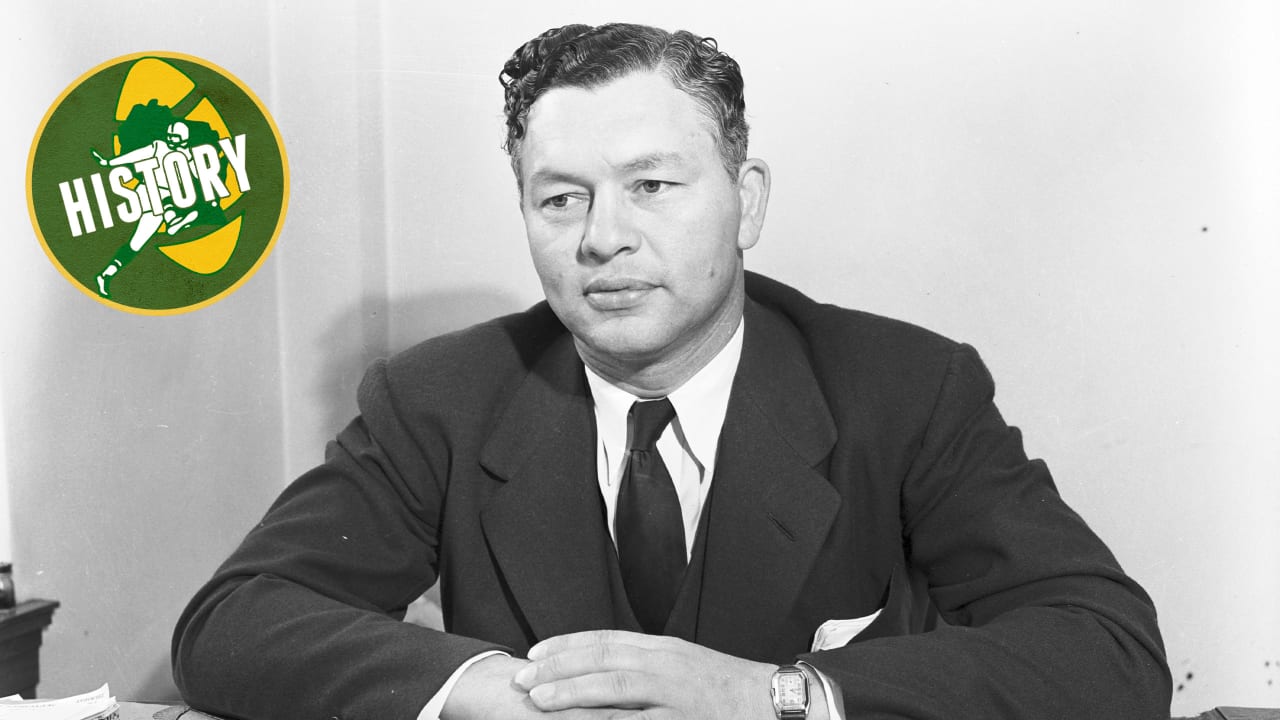Cheesehead
Well-known member
- Mar 19, 2019
- 2,854
- 0

Yet another dilemma for the NFL as discussion over rationing heated up and it prepared for its annual meeting in New York was what to do about Green Bay.
On one hand, Curly Lambeau was one of the strongest proponents of proceeding with the season, just as if it was normal times. "I feel confident that baseball will go through during 1942 and this means that football will, too," Lambeau told Braven Dyer of the Los Angeles Times in late February during his annual sojourn to the West Coast.
On the other hand, the NFL was a compact 10-team league at the time and Green Bay was the only franchise not located in a heavily populated area. Many of its fans also drove long distances to its games.
What's more, Green Bay was the furthest removed of the NFL's eight cities. For the record, Chicago had two teams, the Bears and Cardinals, and New York had both the Giants and Brooklyn Dodgers. Teams traveled almost exclusively by train then, but, still, only Chicago and Detroit were located within 500 miles of Green Bay, and Detroit was close to a 500-mile drive.
When Layden announced before the meeting it would be business as usual for the NFL, he made the point: "From Aristotle's time on down we have been told, and it has been demonstrated, that sports and entertainment are necessary for the relaxation of the people in times of stress and worry. The National league will strive to help meet this need with the men the government has not yet called for combat service, either because of dependents, disabilities or the luck of the draw in the Army draft."
Tire restrictions and other transportation issues, emphasized Layden, shouldn't have much effect on attendance, at least in seven of the eight cities.
"With the exception of Green Bay where there are extenuating circumstances, National league teams are located in the nation's largest metropolitan centers," Layden continued. "Parks are all easily accessible by street cars and busses, with handy connections to suburban traction lines and railroad terminals."
The morning of the first session the United Press reported what to do with Green Bay was one of the thornier issues facing the owners.
"(The Packers) draw their patronage from the bushes and farm centers," wrote UP's Jack Guenther. "With the automobile rapidly becoming as extinct as the Ptolemy family, the Packers may either farm out or play on the road."
Even before the war, other owners had become increasingly reluctant to play in Green Bay because City Stadium held no more than 25,000 people and if you weren't the Chicago Bears or maybe the Detroit Lions, you were likely to play before a less-than-capacity crowd there. In fact, a year earlier, eight months before Pearl Harbor, Lambeau returned from the league's annual meeting with only two owners, George Halas of the Bears and Fred Mandel of the Lions, willing to bring their teams to Green Bay for games. Eventually, Chicago Cardinals owner Charles W. Bidwill Sr., relented and the Packers were able complete their three-game allotment for Green Bay. Their other three home games were played in Milwaukee.
Now, with rationing on the horizon, there was even more apprehension among owners about scheduling a game in Green Bay, if fans couldn't travel there from Milwaukee, the Fox Valley and lakeshore, west to cities along the Wisconsin River, north to Marinette and the U.P., and also from Door County, all bastions of Packers support.
Even at home, the concern about the future of the franchise was real.
"Just what effect the war, and especially the tire shortage, will have on attendance at Packer games is worrying many a loyal Green Bay fan," Green Bay Press-Gazette sports editor Ray Pagel wrote in his column as the meeting in New York drew to a close.
Meanwhile, the Milwaukee Sentinel's Stoney McGlynn reported some owners wanted the Packers to play as many games as possible in Milwaukee.
In the end, the Packers were given five home games for 1942, only one less than they had played in the previous six seasons, and three were scheduled for Green Bay.
Upon his return to Green Bay, Lambeau met with Pagel in his office in the downtown Northern Building and spelled out the battle that had ensued at the league meeting.
"Curly must have had quite a fight getting those five games," wrote Pagel. "At one time during the session it looked as if Green Bay wouldn't get anything but the Chicago Bear game, the league moguls being afraid of the transportation situation for next fall. Curly had offers to play some of the games in Buffalo and another in Akron."
"But I wouldn't give in," Lambeau told Pagel.
A year later, the Packers lost yet another home game, leaving them with only four and just two in Green Bay. But Green Bay was given a third game again in 1944 and things returned to normal when the war ended.
As a final footnote, however, gas rationing, at least in a roundabout way, played a part in the Packers' purchase of Rockwood Lodge in 1946.
